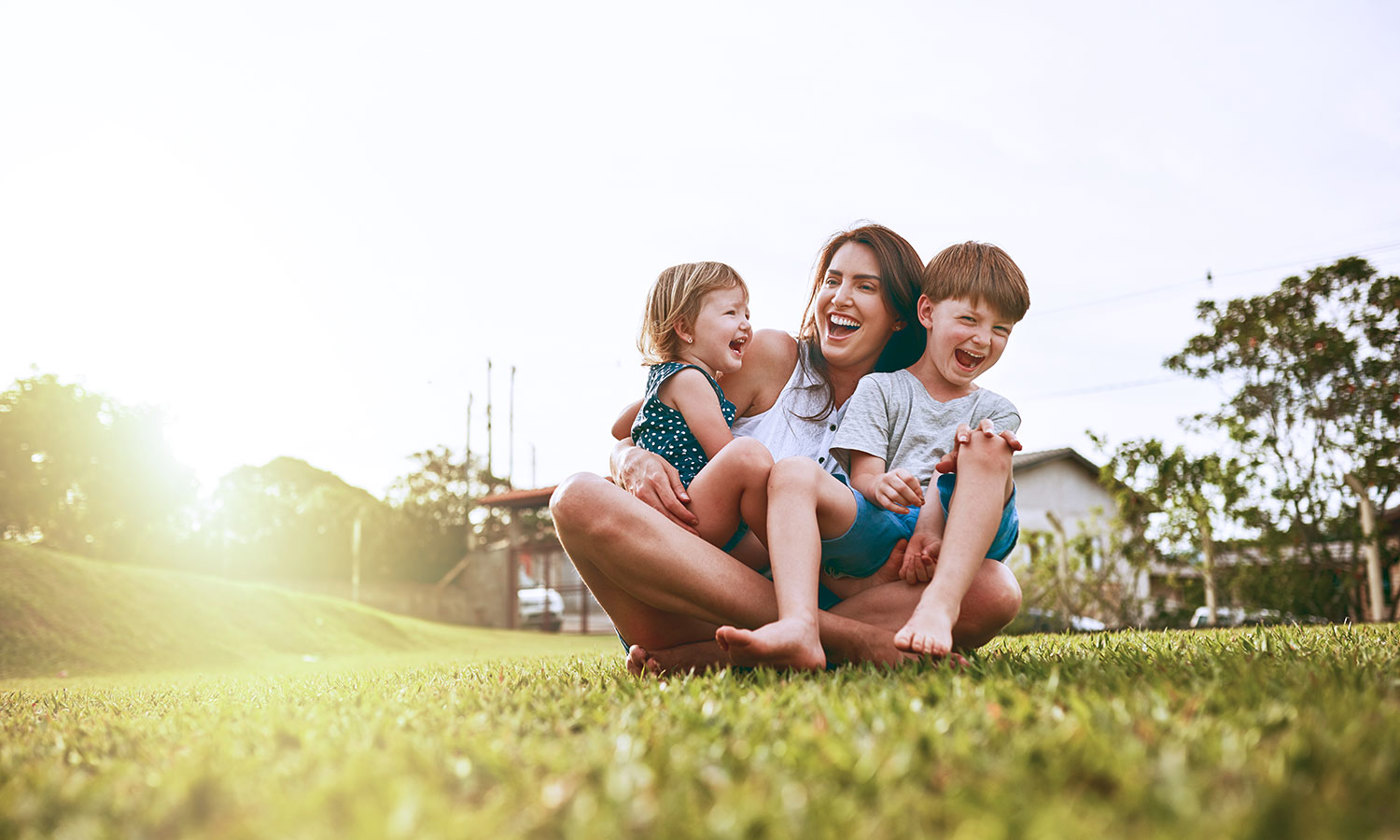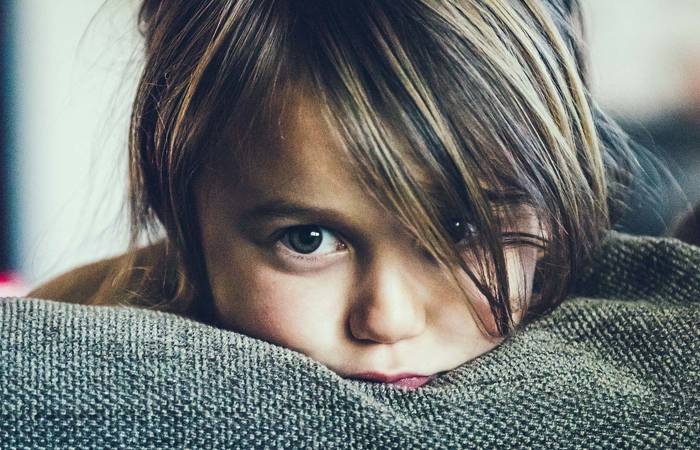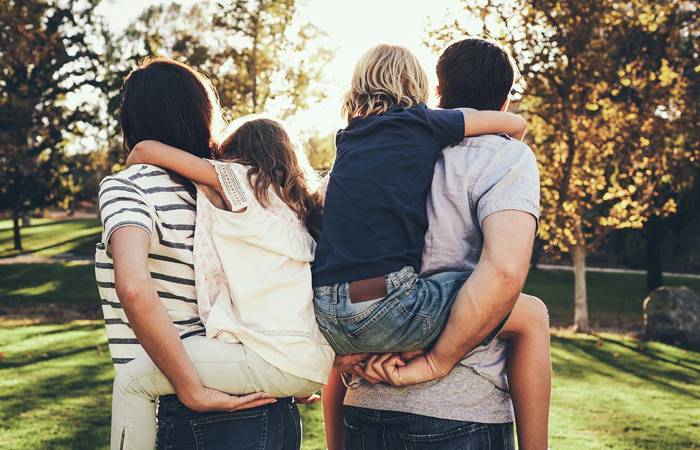Like what you see?
Sign up to receive more free parenting advice.
Thank you for subscribing to our newsletter!
Child Development

Credit: iStock.com/PeopleImages
Walk down the ‘parenting’ aisle at a bookstore or Google ‘best way to parent’ and you will find an overwhelming number of dos and don’ts. And that isn’t taking into consideration the advice from family, friends, neighbours, strangers, social media … the list is endless.
The question is: can the way you raise your children set them up to thrive in the world? Researchers think so.
“The way parents interact with their children teaches them skills on how to thrive, to learn and to relate with others,” says Dr Pilar Rioseco, research fellow at the Australian Institute of Family Studies (AIFS).
“Their parenting behaviours impact their self-esteem, their social skills and how to cope with difficult emotions and difficult situations.”
Children learn by mimicking
Dr Rioseco explains that children learn these skills by watching and mimicking the way their parents relate to them, each other, and other people in their life.
“For example, if a child’s relationship with their parents is warm and responsive, the child becomes confident in who they are, that they are loved, that their needs will be met and all of that develops a positive sense of self which is very important when they go out and face the world,” she explains.
Children also learn how to regulate their emotions and behaviours through interactions with their primary caregivers.
Dr Rioseco says parents teach their children self-regulation through setting limits, being consistent with consequences when those limits are breached and role modelling behaviour.
“Parents not only teach children what behaviour is expected and when they need to stop, but children also learn from the way parents behave in certain situations,” she explains
“For example, if a parent is punishing a child and the parent is angry and losing control, a child could learn that when you feel frustrated, losing control is acceptable.”
She adds that these learned skills are quite critical for children to learn how to relate with others, how to build a good sense of self and to develop their emotional wellbeing.
Parents not only teach children what behaviour is expected and when they need to stop, but children also learn from the way parents behave in certain situations.Dr Pilar Rioseco
Stay up to date with the latest news and articles from First Five Years
Thank you for subscribing to our newsletter!
Understanding parenting styles
In 1966, Diana Baumrind, who is regarded as the pioneer of research into parenting styles, defined three different styles: authoritarian, authoritative and permissive.
In 1983, Eleanor Maccoby and John Martin added a fourth parenting style to the list: neglectful.
Research has consistently shown that authoritative parenting is associated with the best, positive developmental outcomes for children such as emotional maturity, resilience, social competence, self-esteem and academic achievement.
Authoritarian and permissive parenting are associated with negative developmental outcomes, while neglectful parenting is associated with the poorest outcomes for children.
“Authoritative parenting, within those four definitions, definitely produces the best outcomes for children, however, I don’t believe it is beneficial to label parenting styles with such strict definitions,” says Dr Rioseco.
“Parents will show different behaviours at different times, and we don’t want parents to feel like they don’t fit into a specific category, or that they are failing if they step out of the ideal.
“Instead, I prefer to talk about specific behaviours, which I feel is easier for parents to incorporate into the day-to-day parenting.”
In her research, she examined the role of parenting behaviours, parental mental health and parents' health behaviours on children's social-emotional adjustment using data from Growing Up in Australia: The Longitudinal Study of Australian Children.
A mother’s influence on a child’s wellbeing
Due to the available data, the research focused on the impact of the mother’s parenting style.
They found that when children regularly experience warmth (loving interactions for no reason), consistency (consequences are followed through when rules are broken) and low frequency of hostile parenting (aggression or disapproval) there was a significant positive effect on children’s social-emotional wellbeing.
Hostile parenting had the biggest impact on negative conduct problems.
For example, for mothers who reported regularly becoming angry or losing control while punishing their child, those children were more likely to display conduct problems such as temper tantrums.
The research also examined the impact parents’ mental health has on children’s social-emotional wellbeing.
This included the mental health of a pregnant mother.
“A mother’s mental health during pregnancy affects their mental health after birth, and previous research has shown that there are some direct links between a mother’s mental health after birth and how they relate to their baby and their parenting behaviours, including negative interactions,” explains Dr Rioseco.
“When mothers are struggling with their mental health in their child’s early years, it can make it difficult for them to display positive behaviours, like being responsive, showing the children how to cope, staying engaged and staying calm, as they are dealing with their own difficult mental health issues.
“This is why seeking support early is so incredibly important.”
Their research suggests that by supporting maternal mental health, we would be promoting children’s social-emotional wellbeing too.
While the research didn’t focus on fathers, Dr Rioseco says that their parenting style and mental health is just as important in children’s social-emotional wellbeing.
“Through other studies, we know that a father’s mental health affects children’s wellbeing, particularly through hostile parenting,” she says.
“There is also research that shows fathers autonomy granting is really important for adolescent mental health.”
Dr Rioseco says that, above all, parents need to remember that parenting is a learning journey.
“Parents are never going to be perfect, it’s okay to be good enough,” she adds.
“Parents need to remember to take care of themselves too.
“Getting help for your own mental health, especially when you feel you aren’t coping, will have a very positive impact on your children.”
Dr Pilar Rioseco’s advice to new parents:
- There are so many expectations and demands on mothers and they tend to put themselves at the bottom of the list. Research shows that looking after themselves helps mothers display positive parenting behaviours for their children. Find a small bit of the day, every day, where you can fill up your own bucket.
- Advice to new parents can be very overwhelming. The basics are positive interaction, staying calm, listen, model good behaviour and be consistent. Some parents want to avoid conflict at all costs but that is very damaging for children. Limits teach children what behaviour is appropriate and how to self-regulate which is a key life skill.
- Talk to other parents. Every parent is struggling with something – despite their beautifully curated Instagram account. We all have things we struggle with and other things we are great at. We need to continue to talk to others and share our experiences, so we don’t feel alone in our parenting journey.
The big four parenting styles:
- Authoritative: the style heralded as the best for positive outcomes for children provides children with warmth and love, so they develop a positive self-worth. Parents using this style also provide structure and boundaries and consistently follow up with appropriate consequences which focuses on teaching good behaviour rather than focusing on the punishment. These children are self-confident, emotionally mature, have good social skills and better wellbeing.
- Authoritarian: these parents employ lots of structure, boundaries and discipline. While children know the rules, this style lacks the warmth children need to develop their self-worth and doesn't allow children to learn how to make their own decisions.
- Permissive: While these parents are very warm and loving, they don't provide their children with structure or boundaries that they need to understand good behaviour and self-regulation. Children can grow up feeling loved and valued but lack self-discipline and can lack social skills.
- Neglectful (also known as disengaged or uninvolved): these parents are neither warm or loving or provide structure. They attend to their child's basic needs, but beyond that are disengaged from their child. Children can lack social skills and be insecure.






